
Vibrant Environment
All | Biodiversity | Climate Change and Sustainability | Environmental Justice | Governance and Rule of Law | Land Use and Natural Resources | Oceans and Coasts | Pollution Control

June is National Healthy Homes Month, a good time for policymakers to consider strategies for reducing exposure to air pollutants inside homes. It’s also a good time to highlight new policies in California and New York that aim to improve home indoor air quality and that are likely to have impacts beyond those two states.
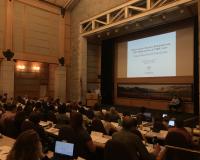
Restoring and protecting our country’s lakes, rivers, and streams is difficult, especially with populations increasing and budgets in decline. It requires innovation, partnerships, sound science, and effective means of communicating.
ELI has long worked with the agencies tasked with restoring and protecting our waters. Earlier this month, we held the 2018 National Training Workshop for CWA §303(d) Listing and TMDL Staff at the National Conservation Training Center in Shepherdstown, West Virginia....
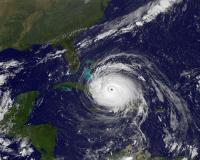
Early in my career, I was conducting bird research for a very inspiring, but demanding professor. With each bird identification that I brought to him, he would respond with a series of qualifying questions, challenging me to provide sufficient proof that my observations would meet his standards for making a positive identification of whatever species I claimed to have seen. Somewhat over-confident and always eager to report my sightings, his response usually left me unsatisfied, and often frustrated. “Trust but verify,” this professor would always say.
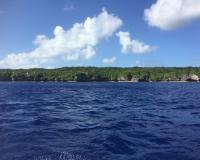
One of the highlights of the 2017 Our Ocean Conference in Malta was the announcement made by Minister for Natural Resources Hon. Dalton Tagelagi that Niue, a small island nation in the South Pacific Ocean, would create a new, large marine protected area to adequately conserve the unique marine biodiversity in Niuean waters.

In March of last year, President Trump issued fossil-fuel friendly Executive Order No. 13783, Promoting Energy Independence and Economic Growth. Section 5 of this Order directed agencies to discontinue use of the “social cost of carbon” (SCC), a protocol developed under the Obama Administration to monetize the impacts of climate-related disasters and disruption.

If you walk into a grocery store almost anywhere in the United States, the first thing you see when you come in is produce. The produce section is a vast treasure trove of fruits, vegetables, and fresh herbs. When shopping for these—something most of us do each week—one immediate decision is whether or not to pay a little extra for “organic” products. We have to make a similar choice in the dairy aisle. And in other areas of the store, we have to decide if it’s worth it to pay extra for “all natural,” “GMO-free,” or “ethically/sustainably produced” goods.
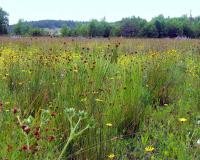
The Oil Pollution Act and CERCLA allow for the recovery of more than just cleanup costs following an oil spill or the release of hazardous substances. These laws also provide for the recovery of damages to restore or replace natural resources to the conditions that would have existed prior to the spill or release, as well as to compensate for interim losses of ecological services. Natural resource trustees—states and tribes acting on behalf of the public—are tasked (along with federal trustees) with planning and implementing the restoration of these lost natural resources and services.
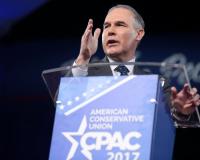
Over the last year, the Trump Administration has launched an extensive regulatory rollback effort, which notably included Executive Order No. 13771 and its two-for-one provision. On May 16, ELI hosted a seminar, “The Burden of Unburdening: Administrative Law of Deregulation,” which examined this deregulatory shift.
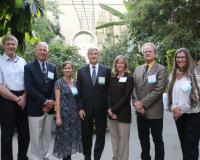
“These places hold the world together,” said National Wetlands Awardee Latimore M. Smith of wetlands during his award acceptance speech. Simple words spoken to him early in his career as he explored a Louisiana bog, they continue to hold profound meaning and inspire him to this day. At the National Wetlands Awards ceremony that took place on May 9, 2018, in Washington, D.C., each of the six awardees shared stories about what inspired them in their efforts to protect and preserve wetlands.
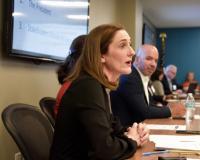
Some of the smartest people in our law school classes became law professors. But, chances are you don’t know much, if anything, about their academic work. Busy policymakers and legal practitioners simply don’t have the time to read long, heavily footnoted law review articles. Yet, buried in those dense law review articles can be important new and creative law and policy proposals. All too often, however, academics talk about those ideas among themselves, and their proposals are not informed by policymakers, let alone adopted in the law and policy arena.